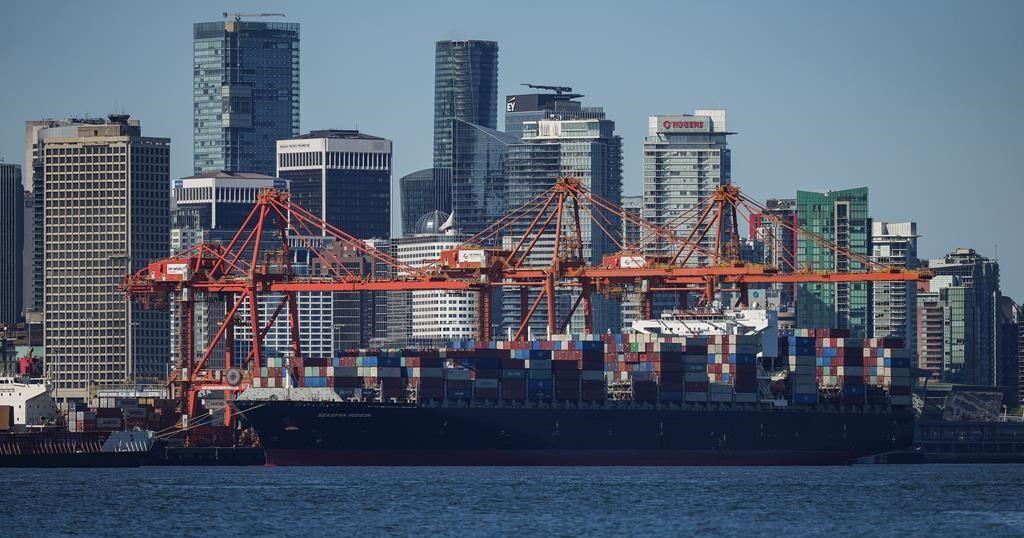Canada’s grain farmers say a strike at Metro Vancouver terminals would cripple crop exports if it were allowed to take place.
The Grain Growers of Canada say in a statement that it is “deeply concerned” about a potential strike of grain workers in Metro Vancouver, since about 52 per cent of all Canadian-grown grain went to those terminals last year.
Grain farmers say a strike would “halt nearly 100,000 metric tonnes” of commodities arriving each day, potentially costing $35 million daily in lost exports.
The response comes after the union representing grain workers at terminals in Metro Vancouver said it has served their employer with a 72-hour strike notice.
The Grain Workers Union Local 333 says in a statement posted to Facebook that its strike will start at 7 a.m. Tuesday.
The Vancouver Terminal Elevators Association says affected operations include Viterra’s Cascadia and Pacific Terminals, Richardson International Terminal, Cargill Limited Terminal, G3 Terminal Vancouver and Alliance Grain Terminal, all located in Vancouver and North Vancouver.
“Grain farmers in the prairies rely heavily on the Port of Vancouver to handle and export the majority of the grain they grow,” the statement from the Grain Growers of Canada says. “Following last month’s rail work stoppages, this strike will have an equally devastating impact on grain farmers across the prairies who are in the midst of harvest.”
The group is also urging federal Labour Minister Steven MacKinnon to “use all tools available” to prevent a work stoppage from coming to pass.
“Without intervention, Canada’s international trading reputation will continue to suffer, leading to the loss of key global markets and customers,” the Grain Growers’ statement says.
In a separate release, the group representing Saskatchewan’s farmers echoed the national organization’s concerns, saying a strike or any similar work stoppages would be a “gut punch” to farm operators.
“Our farmers are again caught in the crossfire of labour disputes far from their fields, facing the consequences of halted grain shipments,” says Agricultural Producers Association of Saskatchewan president Ian Boxall.
“It’s high time for assertive government action to safeguard our supply chain integrity.”
Grain Workers Union Local 333 says the union’s bargaining committee made the decision to issue a strike notice after the Vancouver Terminal Elevators Association “invested very little effort” during negotiations last week.
The union says it’s now up to the employer to present a proposal for a new contract, and workers have provided a “comprehensive package” last Thursday with the association indicating the next day it had no counter offer.
It’s statement says the union’s shop committees will advise members of their picketing duties before the start of the strike Tuesday morning.
“You are required to leave the terminal at that time if you are working,” the statement says to workers.
“Your union will not bargain against itself,” the grain workers statement says. “We will await their proposal if, and when, it comes, and respond accordingly.”
A statement issued by the Vancouver Terminal Elevators Association says it concluded conciliation with the union with assistance from the Federal Mediation and Conciliation Service on Aug. 26.
It says it could not come to an agreement on a new contract and the union has been in a legal strike position since last Tuesday.
This report by The Canadian Press was first published Sept. 23, 2024.

























